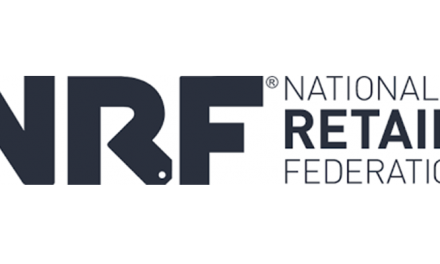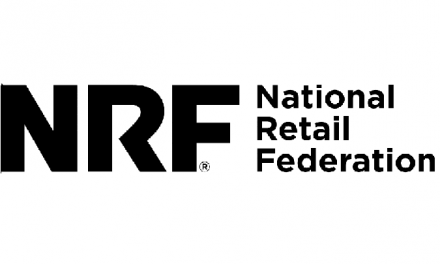Newly Released Principles for DOL Outline the Differences Between Big and Small Businesses
WASHINGTON, D.C. (Jan. 25, 2021) – The National Federation of Independent Business (NFIB), issued six principles to the Department of Labor highlighting the need to keep small business in mind when developing labor-related regulatory initiatives.
The six principles are as follows (with full background at the end):
- Remember the Small Business Half of the Economy when the Big Business Half Speaks.
- One Size Does Not Fit All.
- Small Business Compliance is Largely Do-It-Yourself.
- Assistance with Compliance is More Valuable than Punishment Through Enforcement.
- Pay Close Attention to the Degree of Federal Preemption of State Rules.
- Listen to Small Business Before Issuing Commands.
According to NFIB’s research, small businesses ranked “Unreasonable Government Regulations” as one of their top 10 most severe business problems.
The full text of the principles as provided to DOL are:
- Remember the Small Business Half of the Economy when the Big Business Half Speaks. The Department of Labor keeps the interests of large institutions, such as big businesses and big labor unions, easily in mind. Big institutions are visible in the economy because people see their brands, products, services, and advertising daily. Big institutions also can afford armies of lobbyists to watch every step the Department takes as it moves toward a decision and to bring their influence to bear at every stage of that process. As the Department hears from America’s big businesses and big unions, please remember that the Department is hearing from half the economy. As the Department considers what the big institutions say, think also about what the other half of the economy — America’s small businesses — need so they can continue to grow and create jobs.
- One Size Does Not Fit All. Big businesses and big unions with large revenues and human resources and regulatory compliance departments often can afford to implement a regulation that a small business cannot. When the Department has decided that it will issue a nationwide regulation, the Department should consider whether it can achieve its goal satisfactorily without imposing unneeded burdens on small businesses. Depending upon the nature of the regulation, an exemption of small businesses, an exemption of the smallest businesses (such as those with fewer than 50 employees), or a simpler and less costly alternative for small businesses than the Department requires of big businesses may be in order.
- Small Business Compliance is Largely Do-it-Yourself. Small businesses cannot afford the lawyers, accountants, and clerks that larger companies use to decipher complex regulations and implement costly business systems necessary to comply with the regulations. Small businesses mostly engage in do-it-yourself compliance, in which a business owner trying to keep the business afloat attempts to keep up with regulations as much as the owner can. Thus, the Department should focus its efforts on making regulations concise and simple. Also, the Department’s enforcement regulations and policies should protect small businesses owners who have done the best they can in good faith to understand and comply with the large, ever-growing, and ever-changing body of Department of Labor regulations.
- Assistance with Compliance is More Valuable than Punishment through Enforcement. When the Department of Labor helps small businesses to comply with regulations, the Department serves the goals of federal labor laws much better than when it imposes fines or refers for prosecution. Accordingly, the Department should emphasize efforts to educate small businesses about its regulations, including when it conducts inspections of small businesses. Often, a small business owner hears of a regulation for the first time when a departmental inspector finds a violation. Small business owners acting in good faith should have an opportunity to correct such a violation and come into compliance, without fines or enforcement actions. Thus, when the Department writes regulations, the Department should provide for enforcement against small businesses only in cases of willful or repeated violations.
- Pay Close Attention to the Degree of Federal Preemption of State Rules. State governments often have a closer familiarity with the situations of small businesses in their states than does the federal government. Accordingly, states often may have labor laws and regulations better tailored to the needs of the economies of those states than a federal rule would be. In relatively rare situations, such as a rule preventing rather than imposing a burden on small businesses, a rule that is nationwide might better serve businesses because of its uniformity and clarity. Accordingly, the Department should give careful thought in developing its regulations on a subject to the extent to which the regulation should or should not preempt state regulations on the same subject. In particular, when the Department considers a federal regulation that imposes a burden on small businesses, the Department should consider specifying in the federal regulation that the federal regulation preempts state regulations that are more restrictive than the federal regulation, but does not preempt state regulations that are less restrictive.
- Listen to Small Business Before Issuing Commands. As a U.S. Court of Appeals has said: “Notice and comment are not mere formalities. They are basic to our system of administrative law. They serve the public interest by providing a forum for the robust debate of competing and frequently complicated policy considerations having far-reaching implications and, in so doing, foster reasoned decisionmaking.” NRDC v. NHTSA, 894 F. 3d 95, 115 (2d Cir. 2018). With respect to most regulations, the Department must provide an opportunity to comment to, and consider the comments of, small businesses and others because the Administrative Procedure Act (APA) (5 U.S.C. 553) requires it. But even in the rare cases in which the Department legally can issue a regulation without seeking the views of small businesses in advance, such as emergencies recognized by the APA or section 6(c) of the Occupational Safety and Health Act (29 U.S.C. 655(c)), the Department should seek such views in advance formally or informally as a matter of good practice. The Department, small businesses, and the American economy benefit from such a cooperative approach to the development of regulations and other guidance. The Department also should adhere carefully to the Regulatory Flexibility Act (5 U.S.C. 601 et seq.), which among other things requires the Department to analyze carefully the effects of its regulations on small businesses and to give small businesses an opportunity to participate in the rulemaking process.









